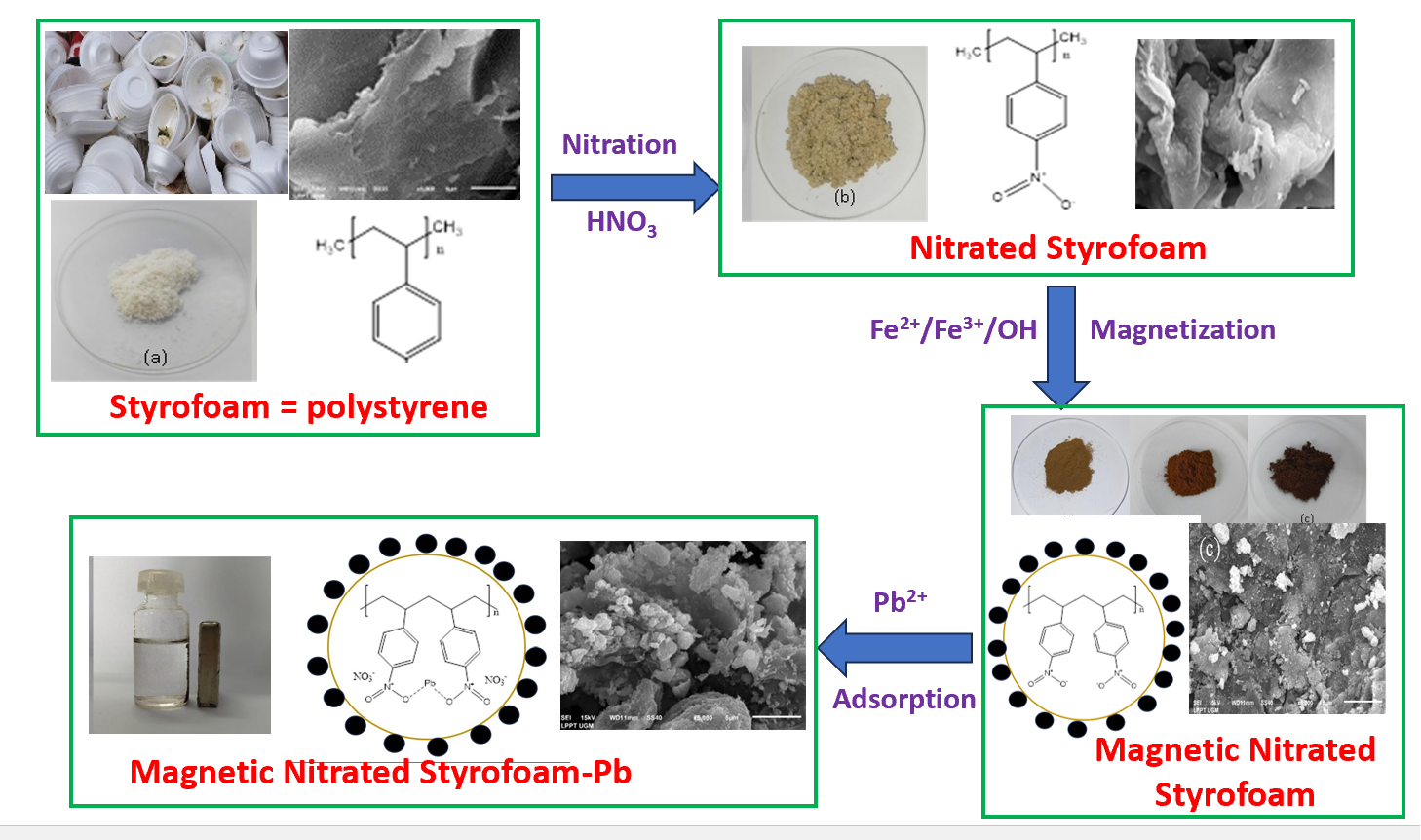
The sequential nitration and magnetization of waste styrofoam to form a novel adsorbent has been investigated. The novelty of this study assigned approach lies in the introduction of an anionic surface on the styrofoam, enabling it to adsorb cationic Pb2+ ion, combined with its magnetic property that facilitates rapid and practical recovery. The nitration was conducted using concentrated nitric acid in the presence of sulfuric acid, and the magnetization was performed by coprecipitation of Fe2+ and Fe3+ at high pH to form Fe3O4. The prepared adsorbents were characterized using Fourier Transform Infrared Spectroscopy (FTIR), X-Ray Diffraction (XRD), and Scanning Electron Microscope-Energy Dispersive X-ray (SEM-EDX) instruments. The characterization data clearly showed the evidence that nitrated-magnetic-styrofoam was successfully produced. The adsorption process of Pb2+ ion from aqueous media was evaluated via batch experiment. The contact time of the adsorption, adsorbent weight, solution pH, and initial concentration of Pb2+ were optimized to get the best adsorption condition. The adsorbent with 33.3 wt% of Fe3O4 fraction revealed a compromise of high adsorption effectivity around 90.0% and efficient separability with the optimum condition of 30 mg adsorbent dose at solution pH 6 within 60 minutes of adsorption time and initial concentration at 50 mg L-1 Pb2+. The parameters isotherm and kinetic of adsorptions were also determined. According to three simulated isotherm models of Langmuir, Freundlich, and Sips, Langmuir isotherm is well-fitted with an adsorption capacity of 9.81 mg g-1. The adsorption kinetic matches to a pseudo-second order giving an adsorption rate constant of 0.131 g mg-1 min-1 and is expected to give chemisorption mechanism.
Total file downloads: 14